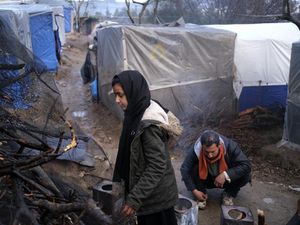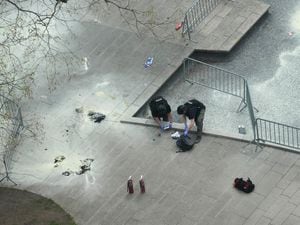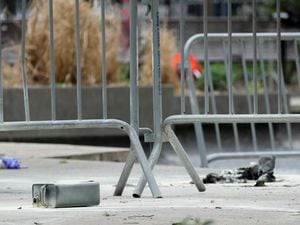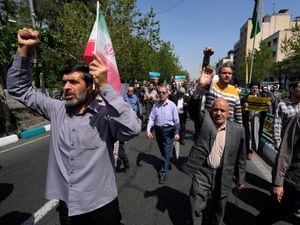Amnesty International criticises ‘alarming’ Greek plans for floating border
Greece’s Defence Ministry has invited private contractors to bid on supplying a 1.7-mile floating fence to stop migrants within three months

Amnesty International has criticised Greece’s plans to deploy a floating barrier as a way to prevent migrants from reaching its islands from nearby Turkey.
The international rights group’s research director for Europe, Massimo Moratti, described the plans as “an alarming escalation in the Greek Government’s ongoing efforts to make it as difficult as possible for asylum seekers and refugees to arrive on its shores”.
Greece’s Defence Ministry has invited private contractors to bid on supplying a 1.7-mile floating fence within three months.
A Government official said the contract process would be executed by the Defence Ministry but was for civilian use, similar to the military’s supply of equipment for housing in refugee camps.
“The plan raises serious issues about rescuers’ ability to continue providing life-saving assistance to people attempting the dangerous sea crossing to Lesbos,” Mr Moratti said in a statement.
“The Government must urgently clarify the operational details and necessary safeguards to ensure that this system does not cost further lives.”
Greece’s six-month old centre-right Government has promised to take a tougher line on the migration crisis and plans to set up detention facilities for migrants denied asylum and to speed up deportations back to Turkey.
Government spokesman Stelios Petsas said there would be returns every Friday, with an aim to have 10,000 returns in 2020.
Speaking on a local television news show, Mr Petsas said the floating barrier system “will have to be tested to see whether it will safely bring the results we want”.

Under a 2016 migration agreement between the EU and Turkey, people arriving on Greek islands from Turkey remain on the islands pending deportation unless they successfully apply for asylum in Greece.
Only those deemed to be vulnerable cases can be transferred to the mainland.
A massive backlog in the asylum application system combined with an increase in arrivals has dramatically overcrowded island camps.
The largest such camp was built at Moria, on the island of Lesbos, to house 2,840 people but more than 19,400 currently live in and around the camp.
Rights groups have repeatedly warned of dire conditions there.
Hundreds, mainly women and children at Moria, held a protest march in the island’s main town of Mytilene on Thursday, complaining about the conditions and demanding to be transferred to the mainland.
The protesters, mostly from Afghanistan, held up slogans scrawled on cardboard and sheets.
One read “we are not prisoners, we are refugees”, while another said “we escaped war and insecurity but here they kill us from the cold”.
Riot police were deployed but no violence was reported and the protest ended peacefully.





